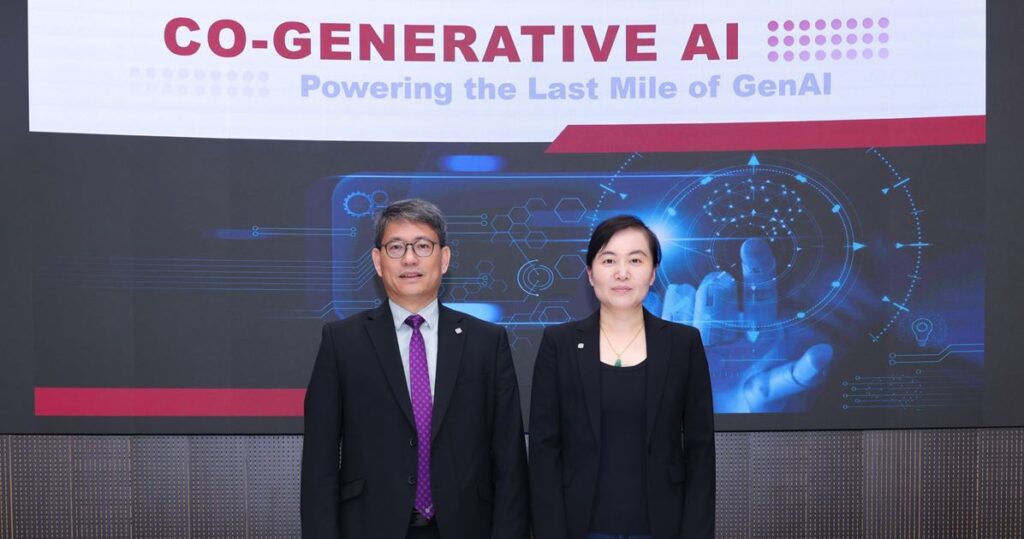
The Hong Kong Polytechnic University (PolyU) has unveiled a transformative approach to artificial intelligence (AI) research, introducing a collaborative paradigm known as Co-GenAI. This innovative framework significantly reduces the costs associated with training foundation models, making AI research more inclusive and accessible to institutions worldwide.
Advancements in Generative AI (GenAI) are often hampered by three primary challenges. The first is the high computational cost of training foundation models, which limits participation to a select few organizations with the necessary resources. Secondly, data privacy and copyright issues create barriers, particularly in sensitive fields such as healthcare and finance. Lastly, static foundation models fail to adapt to new knowledge, requiring vast resources to retrain each model from scratch, thus hindering rapid innovation.
To address these obstacles, the PolyU Academy for Artificial Intelligence (PAAI) has developed a groundbreaking model training framework. This system enables ultra-low-resource training and decentralised model fusion, allowing a broad range of researchers to engage in AI development. The end-to-end FP8 low-bit training solution is the first of its kind from an academic institution and covers both continual pre-training and post-training stages.
The new approach offers notable advantages over traditional training methods. Compared to BF16 precision, FP8 reduces peak memory requirements by over 10% and accelerates training speed by more than 20%. The training pipeline includes continual pre-training, supervised fine-tuning, and reinforcement learning, achieving BF16 quality while minimizing training time and resource use.
Furthermore, the PAAI team is exploring even more cost-effective FP4 precision training, with promising preliminary results published in academic journals. In medical applications, models trained through these pipelines have demonstrated superior performance in diagnosis and reasoning across critical areas.
The PolyU InfiFusion model fusion represents a significant advancement in model fusion research. It successfully merges large models using only hundreds of GPU hours, a stark contrast to the millions typically required. For instance, the team combined four state-of-the-art models in just 160 GPU hours, avoiding extensive training costs while producing models that outperform their predecessors.
Prof. YANG Hongxia, Executive Director of PolyU PAAI and Professor in the Department of Computing, emphasized the impact of these advancements: “Ultra-low-resource foundation model training, combined with efficient model fusion, enables academic researchers worldwide to advance GenAI research through collaborative innovation.”
The PAAI team is already applying its training pipelines in various domains, including medical AI models that achieve top-tier performance. Collaborations with institutions such as Huashan Hospital affiliated with Fudan University and the Sun Yat-sen University Cancer Center are underway, focusing on personalized treatments and AI-assisted radiotherapy for oncology patients.
In addition to medical applications, PAAI has developed a cutting-edge AI tool designed to assist with academic research. This graduate-level AI writer enhances the research process by supporting a multimodal patent-search engine and facilitating manuscript drafting.
Prof. Christopher CHAO, Senior Vice President for Research and Innovation at PolyU, stated, “AI is a key driver in accelerating the development of new quality productive forces. The newly established PAAI is dedicated to expediting AI integration across key sectors and developing domain-specific models for diverse industries.”
The research initiative led by Prof. YANG is backed by significant funding from the Theme-based Research Scheme 2025/26 under the Research Grants Council and the Cyberport’s Artificial Intelligence Subsidy Scheme. This marks a crucial step for Hong Kong in establishing itself as a global leader in AI innovation and broadening the reach of AI technology across various industries.
Overall, PolyU’s pioneering efforts in AI training not only set a new standard in the field but also pave the way for a more democratized approach to AI research and application.






